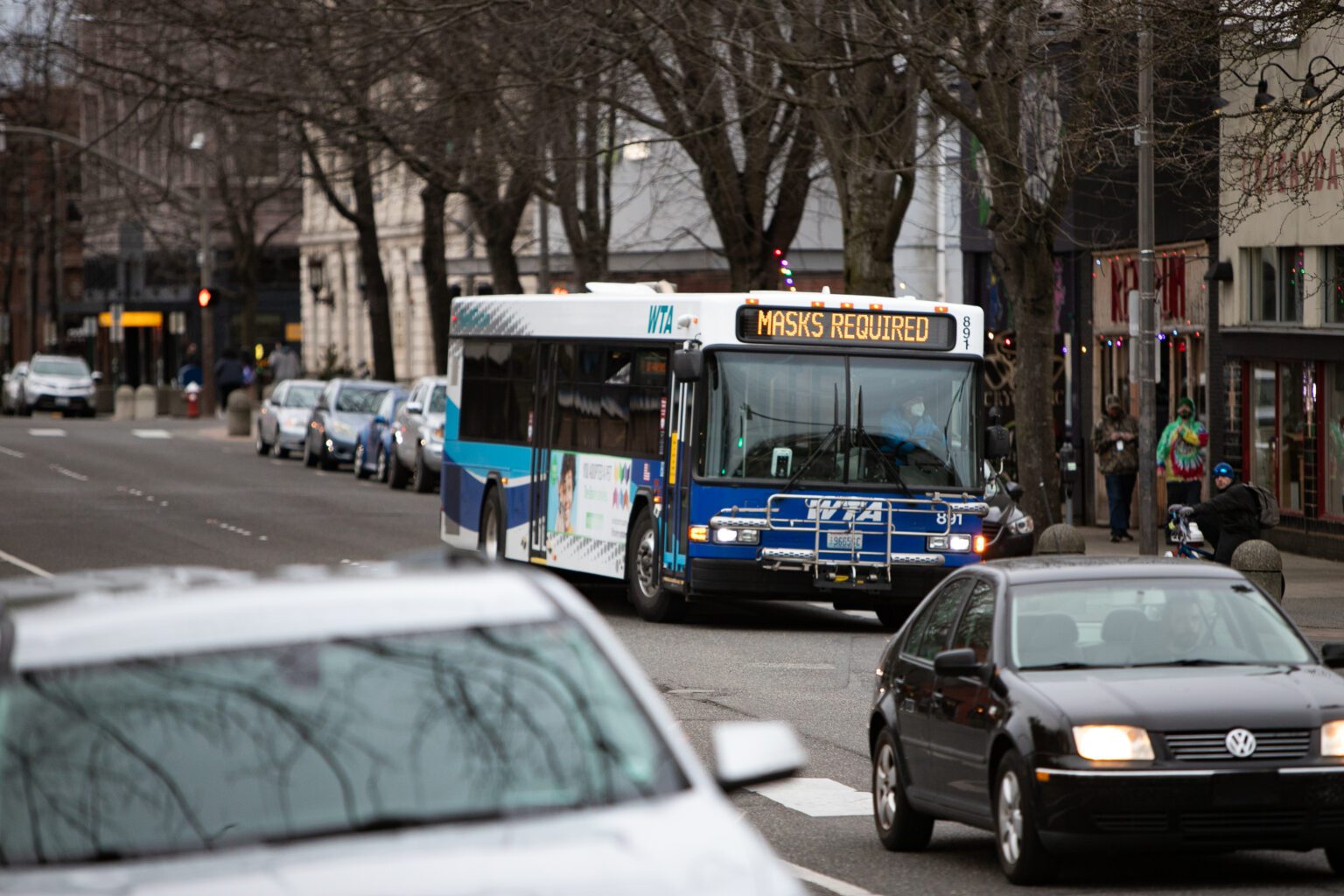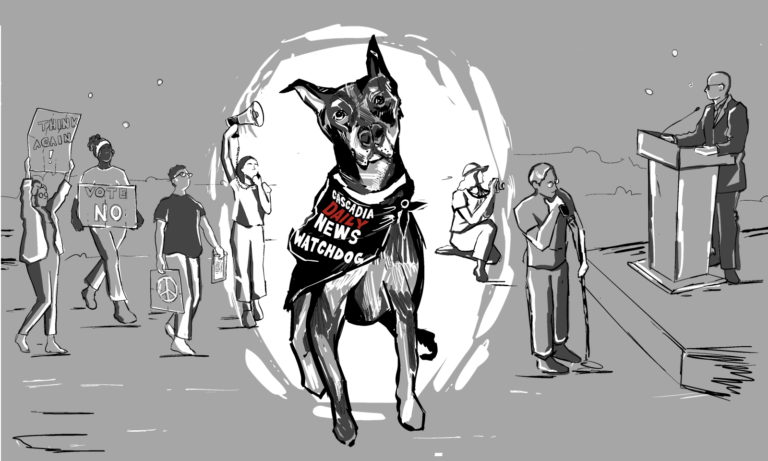Federal rescue money delivered to Whatcom Transportation Authority was meant to make up for revenues lost to COVID-19 lockdowns. But the feds appear to have over-delivered, with $39 million in payments spread over three years ballooning the agency’s coffers and creating a budget surplus of more than $19 million.
The unexpected windfall, spread over three budget years, dwarfed what turned out to be relatively minor shortfalls in fares and sales tax revenue WTA has seen during the pandemic.
The relief fund’s intent at the outset was clear: Lockdowns meant Canadian shoppers could no longer cross the border, which contributed to WTA’s $1.8 million sales tax shortfall in 2020 according to the agency’s 2022 budget. WTA lost even more in operating revenue — $2.1 million — after it stopped collecting fares on March 18, 2020.
In late 2020, with no COVID-19 vaccine available and no end to the pandemic in sight, wary WTA leaders drew up a conservative budget for 2021. As it turned out, however, the agency would have finished 2021 with its operating budget in the black even without the $9.3 million in federal relief it posted that year.
A strong construction sector and a rebound in consumer spending enabled sales tax revenues to beat WTA’s conservative forecast for 2021 by $3.3 million, mostly erasing the previous year’s losses.
Then came the federal bonus: Thanks to WTA’s three payments, totaling more than $39 million, the agency expects to bring in $19.2 million more in 2020-22 than it will spend.
Bellingham City Council member Michael Lilliquist, who also serves as WTA’s board president, said the transit agency benefited from a one-size-fits-all approach to federal transit assistance. The money was intended to prop up larger systems that rely heavily on fares for their income, he said. WTA lost 74% of its fare revenue in 2020, but riders cover less than 10% of WTA’s budget.
WTA neither requested nor expected all that federal money, said Maureen McCarthy, WTA public information officer. But the agency didn’t turn it down, either, and the next step is figuring out how to spend it.
“That is a big question for us, as you can imagine,” McCarthy said.
The answers are contained in a 75-page long-range plan called “WTA 2040.” The plan outlines three broad goals: improving service to people of color, low-income individuals, seniors and disabled people; enhancing service more broadly; and cutting climate-change impacts.
Lilliquist said the board heard many comments from the public asking it to accelerate the pace of converting its fleet of diesel buses to all-electric. Each electric bus costs about $1 million, compared to $600,000 for those that run on diesel.
To help pay for the long-range plan, WTA is getting yet another windfall: its share of the transportation package the state Legislature approved last week. Dubbed “Move Ahead WA” and passed without input from Republicans, the 16-year transportation package includes grants for transit agencies that could amount to $1.7 million annually for WTA, McCarthy said.
The funding will be tied to certain benchmarks, McCarthy added, including how well WTA meets carbon-reduction targets and meets the needs of underserved groups.
“We’re not sure how much the direct payments will be,” McCarthy said, “but based on the size of the pot overall they will likely be significant.”
The state will also provide WTA $5 million for a planned expansion of the downtown Bellingham station.
Even with the COVID-19 rescue money and 16 years of additional revenue from the state — all of it unanticipated by WTA — there won’t be enough to pay for everything in WTA’s long-range plan without raising taxes or finding some other funding sources. Depending on how many WTA 2040 improvements are included, the plan’s full 20-year price tag ranges from $165 to $263 million.
“Add all this up, and you’re at way more money than we’re going to get,” Lilliquist said. “We can’t do everything we want, but we can do some of what we want.”




